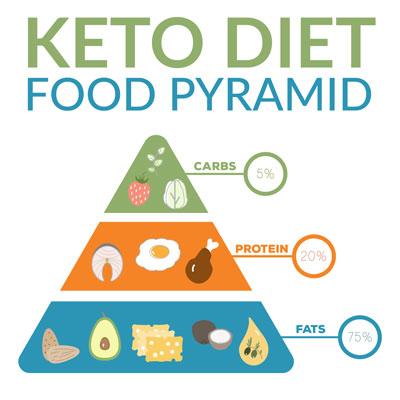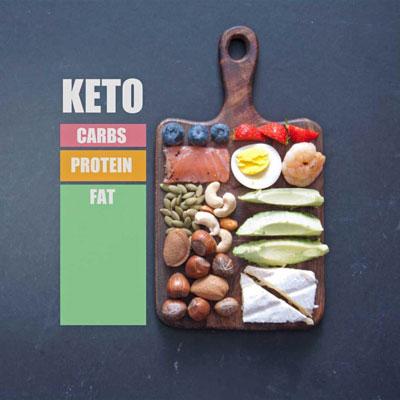06 Mar 2021 - {{hitsCtrl.values.hits}}

 Over the years, the Keto diet has gained a lot of attention and popularity due to its big promises of weight loss and optimum health, just like all the other fad diets out there. However, this is only a quick- fix, it is extremely strict and not sustainable. Research related to the effectiveness of this diet in treating obesity and diabetes is limited.
Over the years, the Keto diet has gained a lot of attention and popularity due to its big promises of weight loss and optimum health, just like all the other fad diets out there. However, this is only a quick- fix, it is extremely strict and not sustainable. Research related to the effectiveness of this diet in treating obesity and diabetes is limited.
What is it and why does the Ketogenic Diet even exist?
The ketogenic diet (KD) is a high fat, low carbohydrate, controlled protein diet that has been used since the 1920s for the treatment of epilepsy. The diet is a medical treatment and is usually only considered when at least two suitable medications have been tried and proven to be ineffective.
The ketogenic diet is an established treatment option for children with drug-resistant epilepsy. However, adults may also benefit from dietary treatments. Dietary treatments for epilepsy must only be followed with the support of an experienced epilepsy specialist and dietitian (food specialist).
How does this diet work?
Ketosis is a metabolic adaptation where your body needs to survive in starvation mode. It breaks down ketone bodies which is a fuel the liver produces from fat stores. In order to achieve ketosis, the diet requires you to eat 75% of your calorie intake in fat, when in reality fats should only make up 20-35 % of your calorie intake. It also deprives you of carbohydrates, allowing you to consume fewer than 50 grams (that’s only two medium sized bananas!). On average, a person consumes minimum 250g of carbohydrates. With the ketogenic diet, the body mostly uses ketones instead of glucose for its energy source.
How is the diet monitored in Epilepsy patients?
To check that the diet is producing ketones, ketone levels are checked using a blood test, or a urine analysis stick, which is dipped into a container of you or your child’s urine. The blood test involves a small pin-prick on the finger (similar to monitoring diabetes).

What are the side effects of doing Ketogenic Diet as a Fad?
Why veto the keto?
Even if the diet does work for some, your body composition will change and you will be left with a higher fat to muscle ratio. This means that when you get back to regular eating, you won’t be able to go for long without carbs. Your metabolism will be less efficient due to your higher fat mass as muscle burns more calories at rest than fat. As a result, you will wind up gaining more weight. While this diet may workin the short term, it definitely does not work in the long term.
Considering all the side effects discussed above, people who already have existing health concerns should not even attempt this diet. It is not sustainable, and it demonizes many foods and food groups, which should not be encouraged. This diet is designed for a certain condition and should solely be used for that purpose only.
09 Jan 2025 26 minute ago
09 Jan 2025 1 hours ago
09 Jan 2025 1 hours ago
09 Jan 2025 2 hours ago
09 Jan 2025 2 hours ago